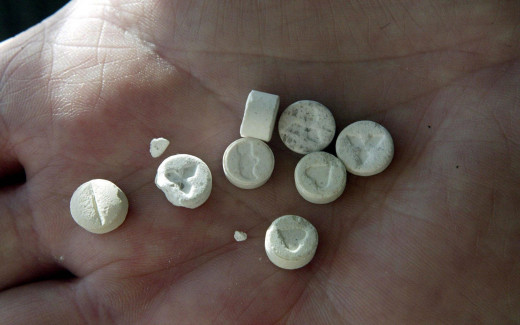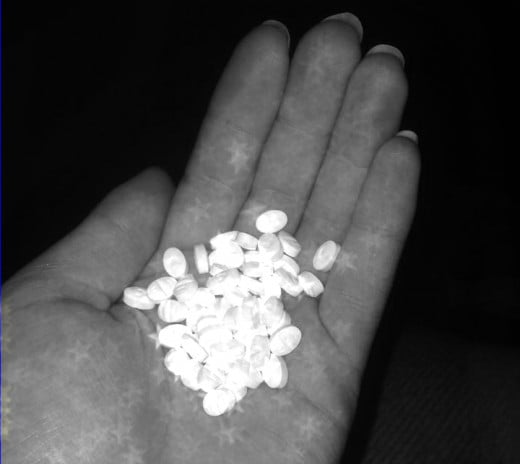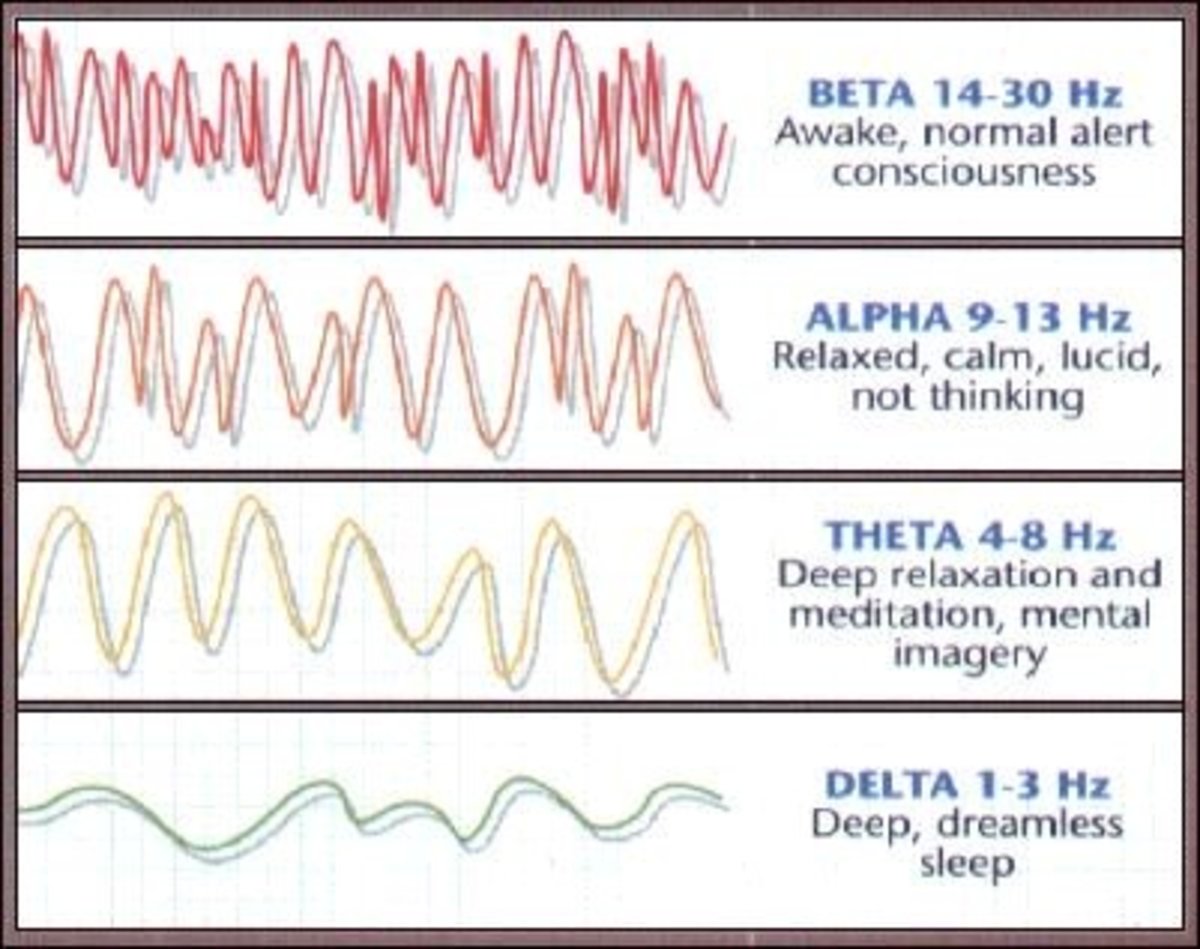MDMA and Selective Serotonin Reuptake Inhibitors, Antidepressants
Disclaimer
The information in this article is provided as an information resource only and is not to be used or relied on for any professional, diagnostic or treatment purposes. This information is not intended to be patient education and should not be used as a substitute for professional diagnosis and treatment. Please consult your health care provider before making any healthcare decisions or for guidance about a specific medical condition.
MDMA

Citalopram

Introduction
In an average and healthy individual, some nerve cells in your central nervous system (CNS) produce the neurotransmitter called serotonin to help regulate things such as your attention, behavior and body temperature. The central nervous system is made up of your brain and spinal cord. The release of a neurotransmitter at the end of a nerve fiber, caused by nerve impulses, allows this chemical substance to diffuse across the synapse of a neighbouring nerve or muscle fiber and propel the impulse in a forward manner until it reaches its destination. Other places in your body that produce serotonin include the intestine.
Serotonin Reuptake Inhibitors
Selective serotonin reuptake inhibitors (SSRI’s) are a medicinal compound prescribed by physicians, generally called antidepressants, mainly for the treatment of major depressive disorders and anxiety disorders. SSRI’s prevent serotonin from being removed from the synaptic cleft of serotonergic neurons in the CNS. This over stimulation and excess firing can causes a decrease in the number of post-synaptic receptors (a mean of 30-40% decrease)[1]. There is a lack of definitive studies that demonstrate whether this damage is permanent or not – a single study with rats shows permanent damage due to the use of SSRI’s. It is noted that these changes in the axon terminals (nerve endings) of serotonergic neurons were similar to those changes observed with the use of 3,4-methylenedioxymethamphetamine (MDMA). Please see the video below called "The Effect of MDMA on your Brain, Explained" for a visual explanation of what is happening when MDMA is used.
The Effect of MDMA on your Brain, Explained
MDMA
MDMA is an illegal, recreational party drug that causes your brain to rapidly release all of the neurotransmitters serotonin, norepinephrine, and dopamine at once [2]. It predominantly produces an affective state of positive mood, euphoria, mania, moderate derealisation, heightened sensory awareness, and a slight increase in psychomotor drive [3]. Additionally, this quick release of serotonin causes increased heart rate, dry mouth, clenched teeth, blurred vision, chills, sweating, and/or nausea. The user can easily and dangerously overheat when taking part in physical activities. This overheating can lead to muscle breakdown, kidney, liver and heart damage and potentially death. The use of MDMA can cause seizures, swelling of the brain, and brain damage to the brain cells it interacts with, even after a single use. The damage caused by MDMA to the axon terminals has been studied in animal and human subjects, and is known to be permanent.
The Problem With Combined Usage of MDMA and SSRI's
The combined use of SSRI’s and MDMA may lead to an acute medical emergency known as serotonin syndrome that requires immediate and adequate treatment. Serotonin syndrome is caused by highly accumulated quantities of serotonin in the body and can cause a collection of health problems that can lead to death if not treated immediately. A few example of minor and major symptoms include confusion, headache, diarrhea, high fever, and unconsciousness.
Comparisons between SSRI’s and MDMA have been made, suggesting that they both perform the same function on the reabsorption of serotonin but differ in the rate that they do so [4]. Additionally, it has been noted in multiple studies, inconsistently, that the combination of SSRI’s and MDMA may reduce the physiological and mental effects of MDMA [5].
Why Is This So Important?
The prevalence of antidepressants in Canada is the third-highest among 23 developed countries, with 86 doses consumed per 1,000 people every day. U.S. Department of Health data shows that the number of Americans on antidepressants doubled from 11.2 million in 1998 to 23.3 million users by 2010. The use of antidepressant has increased dramatically in rich countries over the past 10 years. It is suggested that some of the reasons for this increase is that doctors are prescribing antidepressants for a longer period of time, doctors are more willing to prescribe the drugs for milder forms of depression and antidepressants are becoming cheaper due to the increase in generic versions of the drugs. Additionally, antidepressants are being prescribed for things such as “generalized anxiety disorders or social phobia;” In 2013 the Canadian Pediatric Society even approved the use of certain antidepressants for children.[6]
Although there has been an increase in cost over time, MDMA it is the most commonly used drug after cannabis among those aged 16-24 years. In 2012/13, approximately 434,000 doses of MDMA were seized by the police (down 34% on 2011/12).[7]
Conclusion
Due to the prevalence of these two drugs in the world, it would logical to expect that a situation where a MDMA user is also on a prescribed SSRI and, because of the lack of commonly known information on their interactions, will become severely and permanently damaged without knowledge of the damage.
The dissemination of information is important in proactively educating those impacted on what can go wrong, in order to prevent deadly combinations of common drugs, whether illegal or not, and to establish what to do when it does.
There appears to be a lack of studies on the interaction between these two drugs and in the future I believe that it would be beneficial to many to review scientific results on the interactions between MDMA and SSRI's.
The purpose of this article is to educate, but mainly engage readers in thinking about daily drug interactions and what they can do to prevent health issues. What other type of drug interactions would you like to hear about?
References
[1] The Serotonergic System, the Pineal Gland & Side-Effects of Serotonin Acting Anti- Depressants. AntidepressantsFacts. (2013).
[2] Possible to Roll on SSRI's?. Reddit. (2013).
[3] Matthias E Liechti, Christine Baumann, Alex Gamma, Franz X Vollenweider. Acute Psychological Effects of 3,4-Methylenedioxymethamphetamine (MDMA, “Ecstasy”) are Attenuated by the Serotonin Uptake Inhibitor Citalopram. Neuropsychopharmacology. (2000) 22, 513–521.
[4] James Farganne. How Antidepressants Make Ecstasy Look Like Caffeine. OffSpectrum. (January 2013).
[5] Erowid et al. MDMA & SSRIs. (February 2005).
[6] Daniel Tencer. Antidepressant Use In Canada Among Highest In World: OECD. (December 2013).
[7] Laurence Knott and Adrian Bonsall. Ecstasy. (July 2014).
Feedback
Was This Useful?
Please feel free to leave constructive-criticism or any comments you wish. Feedback is greatly appreciated in order to help me improve on my writing skills, topic choices, and overall article quality.







